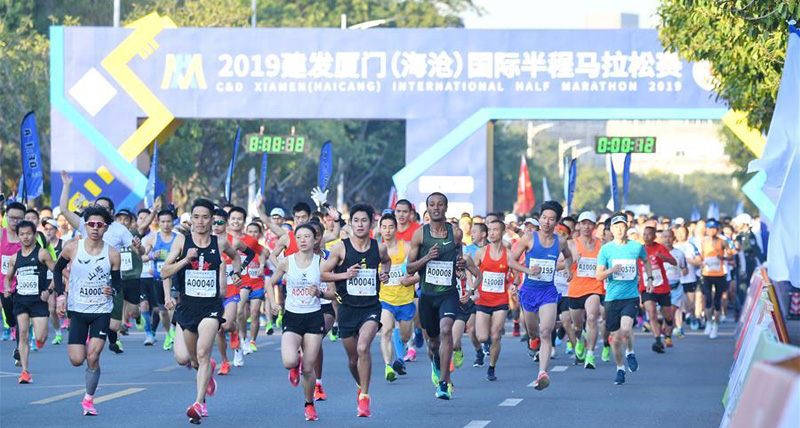Mainland's new policies accelerate integrated development across Strait: expert
Xinhua| Updated: Nov 14, 2019
The Chinese mainland's new policies to further promote economic and cultural exchanges and cooperation across the Taiwan Strait would accelerate cross-Strait integrated development, according to mainland experts.
Known as the "26 measures," the new policies were unveiled by the State Council Taiwan Affairs Office and the National Development and Reform Commission on Nov. 4.
The "26 measures" aim to solve practical problems of compatriots and enterprises from Taiwan, said Zhang Guanhua, deputy director of the Beijing-based Institute of Taiwan Studies under the Chinese Academy of Social Sciences, adding that measures aimed at more efficient inspection and quarantine could help agricultural products from Taiwan to expand the mainland market.
The "26 measures" will advance integrated development across the Strait, and guarantee the wellbeing of Taiwan compatriots, said Sheng Jiuyuan, director of the Taiwan research center under the Shanghai Academy of Social Sciences.
Sheng said the "26 measures" offer the same treatment for enterprises from Taiwan to participate in the research and development of major technological equipment and in 5G technology research and development and networks construction, which would stimulate innovations by Taiwan enterprises, and serve the transition of Taiwan enterprises in traditional industries.
Emerging technology companies from Taiwan could also benefit from the same treatment to grow their business on the mainland, Sheng added.
Tang Yonghong, professor at Xiamen University's Taiwan research institute, expected more policies to promote integrated development across the Strait by providing the same treatment to Taiwan compatriots and companies.
Such policies would enhance the common interests of the people across the Strait and Taiwan people's recognition of the fact that the two sides both belong to one China, laying a solid economic and social foundation for the peaceful reunification of China, said Tang.



 play
play